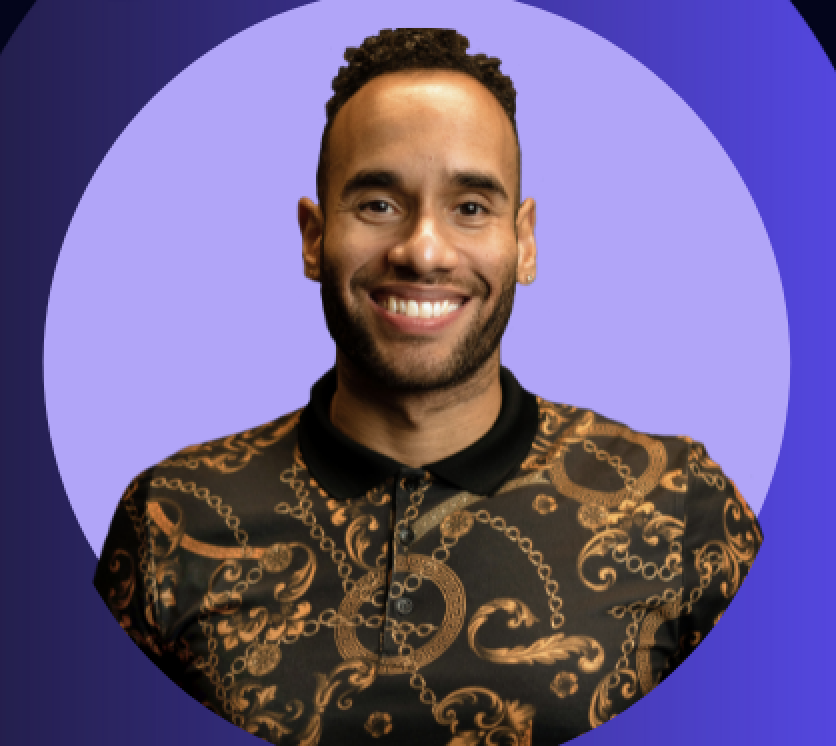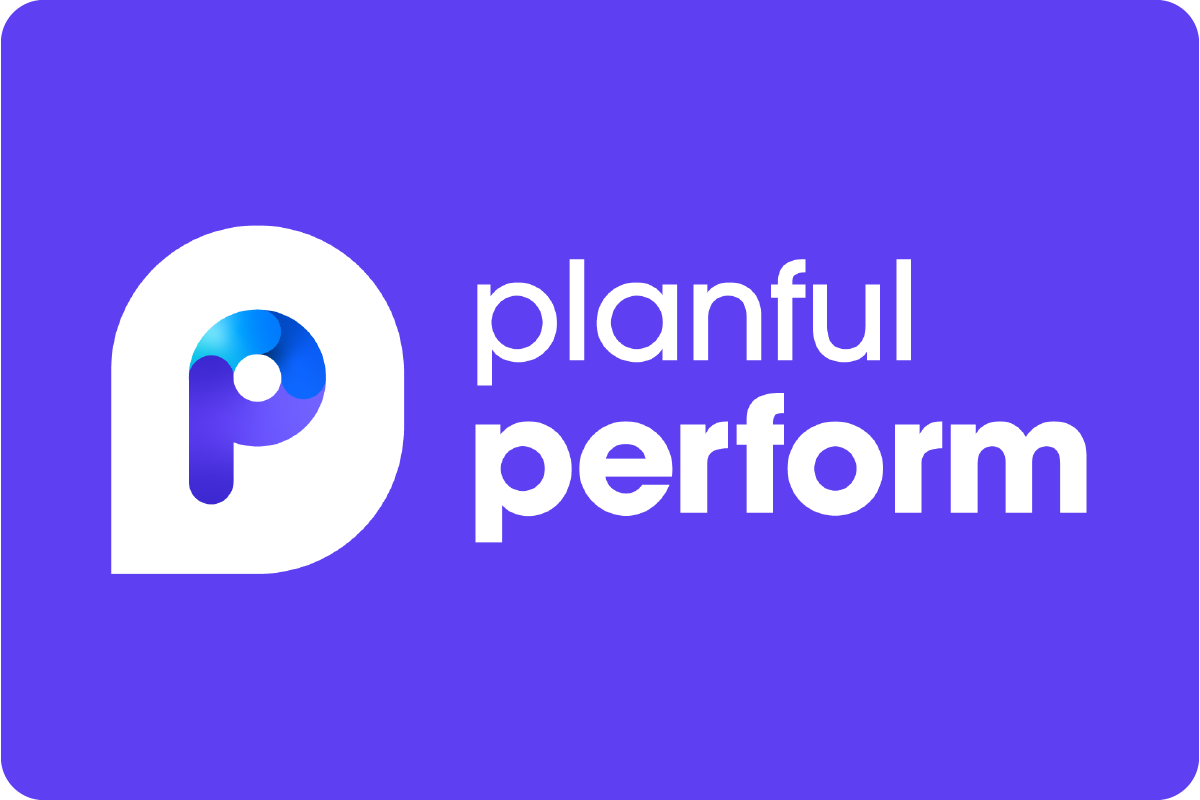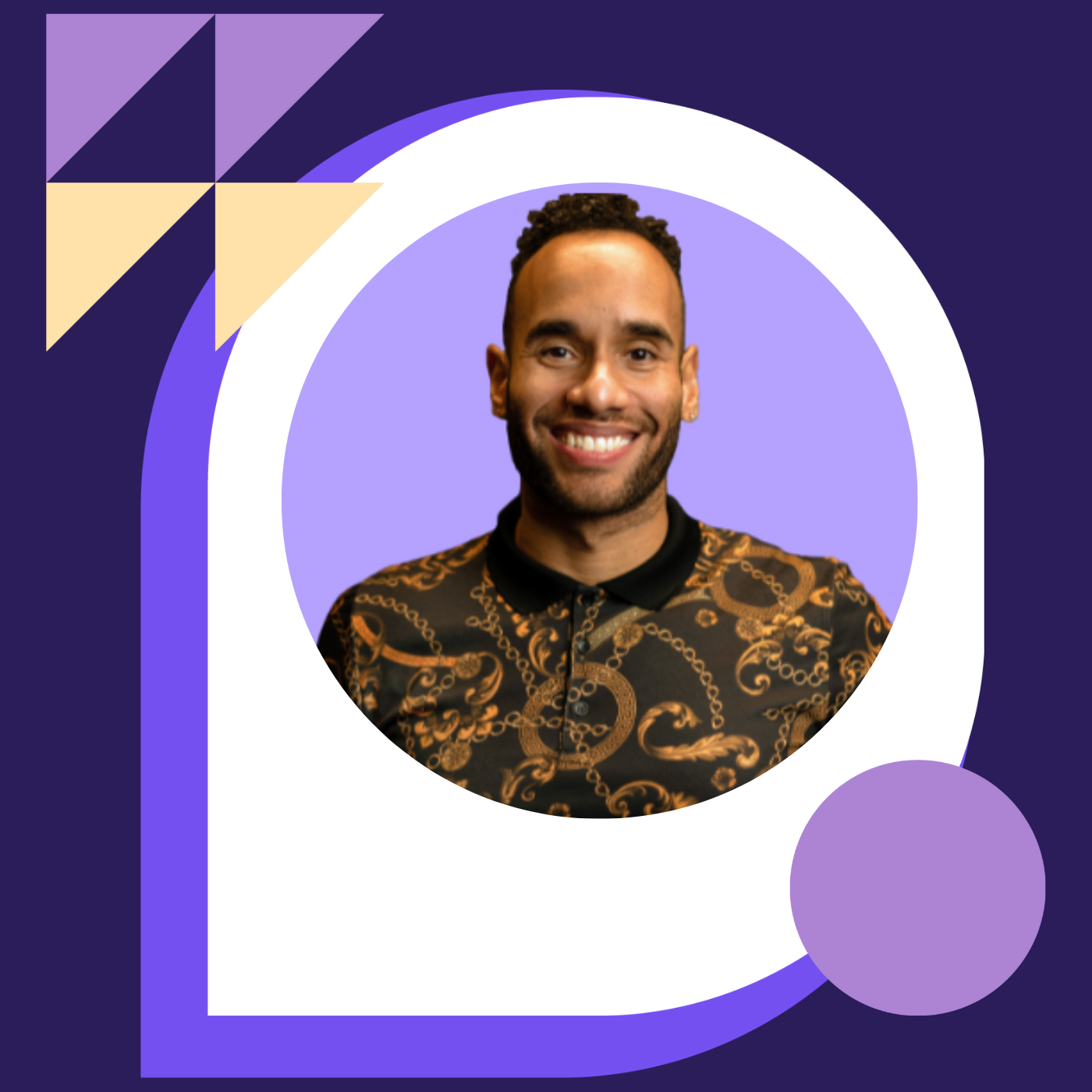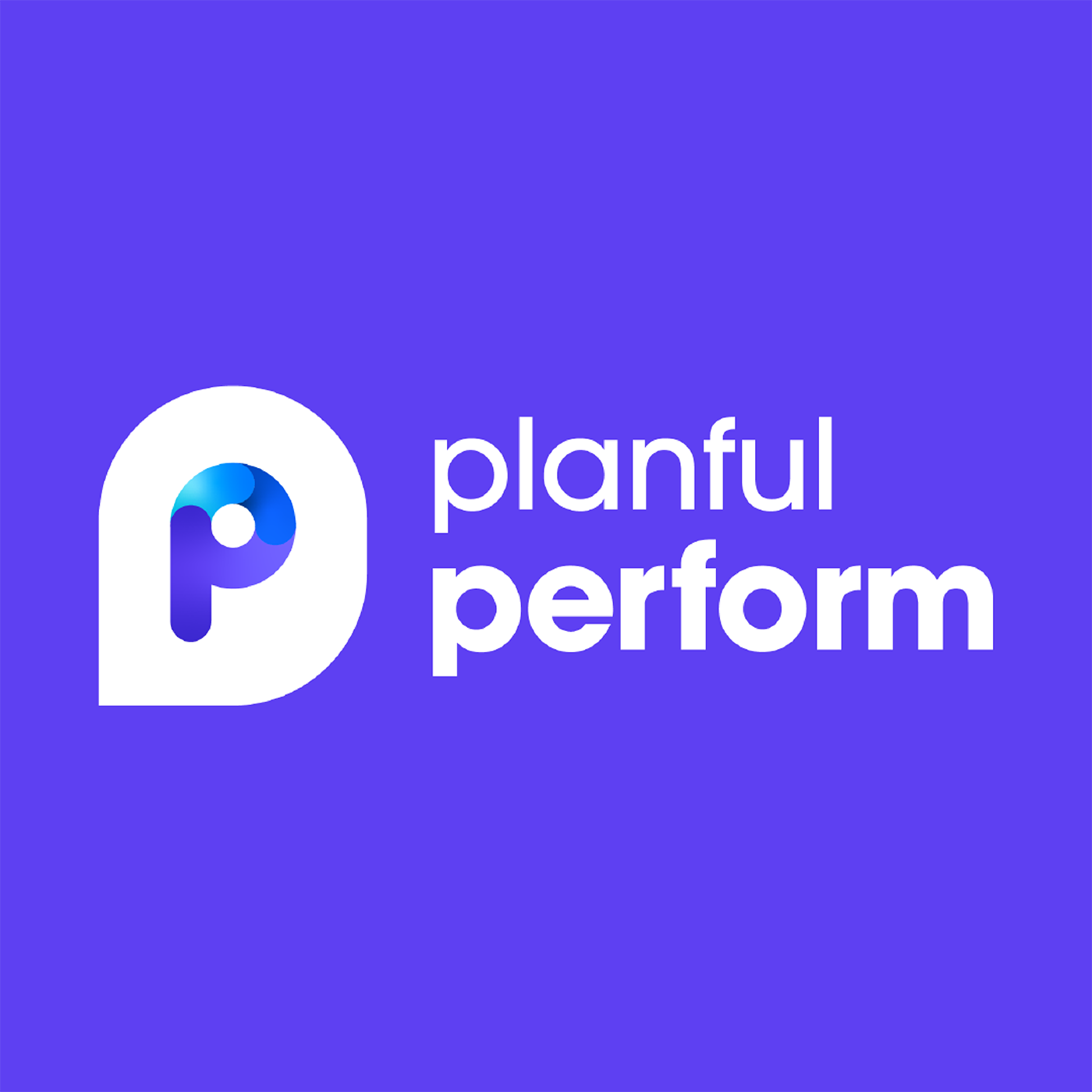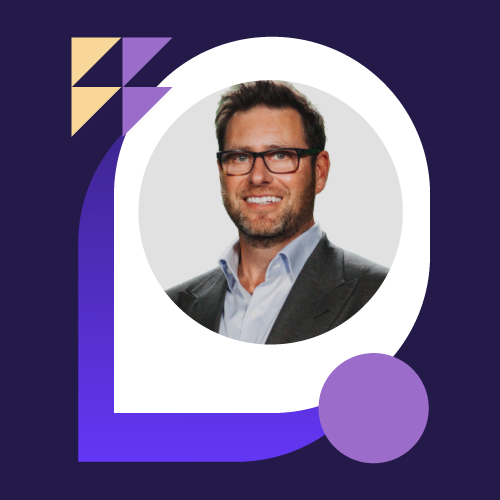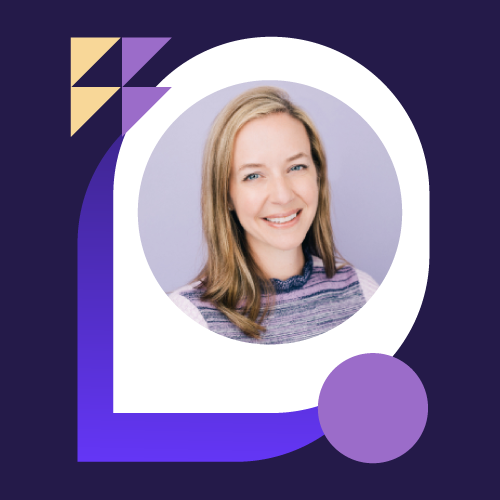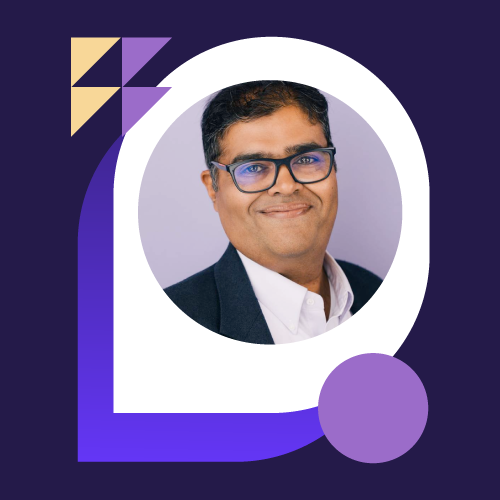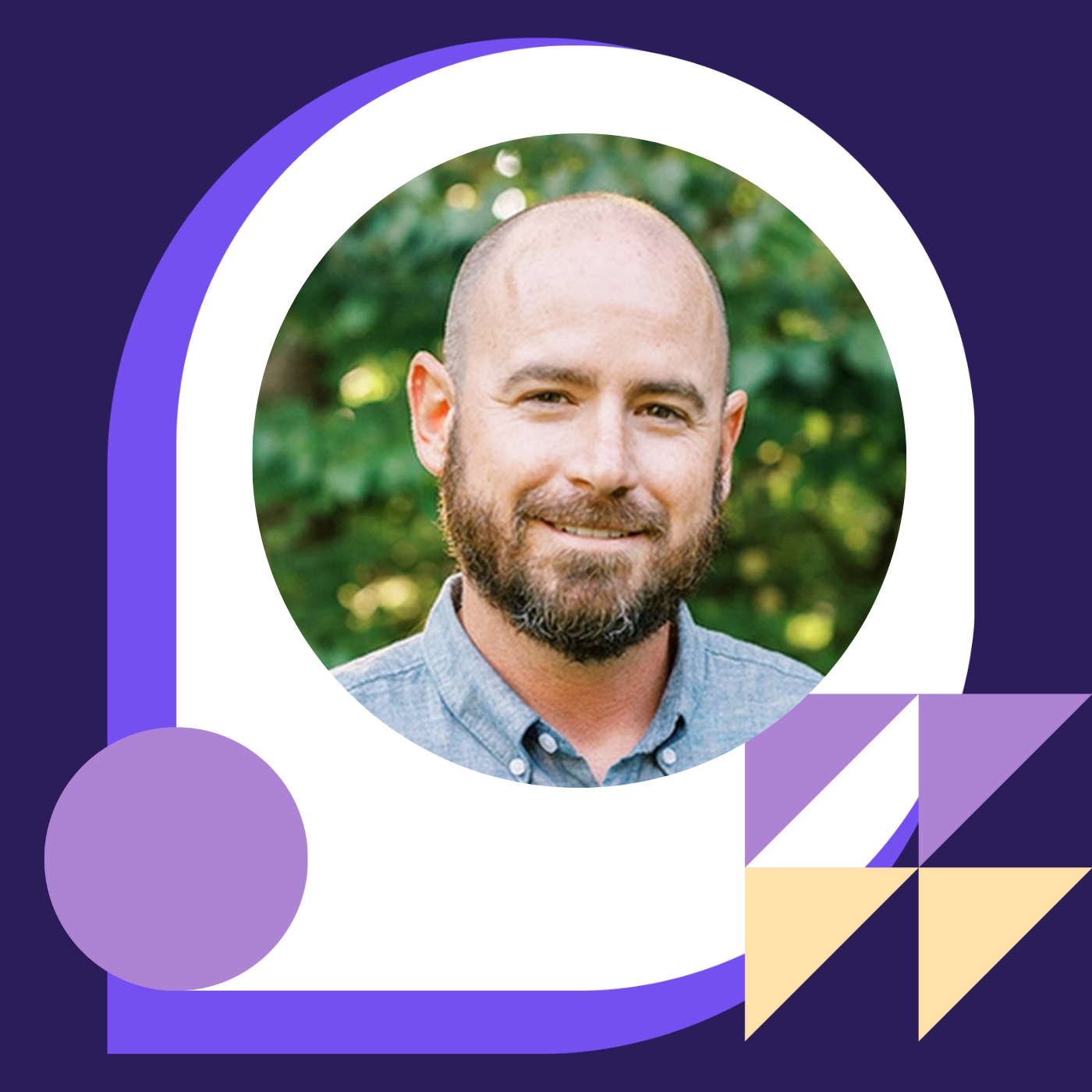Uniting the Business for Success with Chris Ortega
- 0.5
- 1
- 1.25
- 1.5
- 1.75
- 2
Chris: Thank you so much for that great introduction. Good afternoon, good morning, good evening to everybody. Before I get started, I hope your families are safe and well, and that everybody's doing okay. And I'm really excited to talk with you here today about you noting the business for success. Yeah. So a little bit about me. Born and raised in Indianapolis, Indiana. So for all my people looking at it, huhoo, die hard, who's your fan? And most of my background has been in high growth entrepreneur startup technology companies. And what really, really focused on me and where I really get really passionate in presenting and talking is utilizing my skills, passions, and talents to help others realize and achieve greatness. So, that's just a little bit about me. Currently right now, I'm Senior Director of Global Finance for Emarsys, which is the largest e- commerce platform organization in the world. So really excited to talk with you here today about unifying the business for success. Other things about me. So you may look at me, I used to be a amateur boxer, so I get a lot of people that say, man, how did you jump into accounting, finance and got into boxing? Boxing is a tremendous sport. I fought competitively for six years. I did my undergraduate work at the University of Indianapolis, Indiana University. And I double major in accounting and finance. And I know you guys are looking at this slide and you're like, who's that little love biscuit off to the right? That is my love bug. That's my dog, Ernie. He's absolutely the best. And that's my little nugget. So I'm really excited to talk with you here today. Some learning objectives that we're going to talk with you about. I think the first thing is really understanding, what are those new processes and strategies that accounting and finance, FP& A professionals need to know? What are the top three themes that you should be aware of, irregardless of where you're sitting at in your organization. And then the last one is like, how do you future proof the value proposition of accounting, finance, and FP&A? So if I did a really good job, I would deliver on all three of these objectives. If I didn't, I didn't do a really good job on that. So that's what the key takeaways are for this presentation. So let's jump right into it. I get this question so much about what is the new normal when it comes to people, right? We have these slides up here were caused by results driven, high performance accountability. I think the most important one that I want to talk about is this empowerment, right? Obviously the pandemic and organization, they're still going through a lot of challenges, a lot of difficulties emerging going back to, there's so many different things that are fluid, but this empowerment is soul key. And what do I mean by empowerment? Empowerment versus directive driven cultures. Empowerment is all about making sure your people a have the tools that they need to be successful, right? Deliver high quality work and deliver on their commitments, right? Empower your people. One major thing from a people perspective that we've seen throughout the pandemic is that you don't have to be micromanaging people inside the office. You don't have to have people there to tell you what to do. As long as you give people the tools, give them the guidance, give them the resources, and empower them to make decisions. I think another aspect as a finance FP& A leader that you should be thinking about is empowering your people to fail. Let me take a step back, right? You may be like, Chris, why would I want to put my person in a position to fail? Well, it's not about putting them in a position to fail. It's not about, it expanding their comfort zone. Empowerment is giving people the guardrails to make decisions, to learn from their mistakes, to create a learning, and team, and growth mindset that you need to have in your organization. Right? And now when I look at the pandemic, when you think about accounting, finance, FP& A, guys, this is our 15 minutes of fame. This is our moment inside of organizations to help guide what that value proposition is going to be 5, 10, 15 years from now. So when I think about the new normal for finance empowerment is key. Another aspect of what's the new normal, when it comes to finance is really round of our processes, right? I think of like, there's four key pillars I always talk about that are vital for any high performance and partnership accounting, FP& A team. People, process, platform, and partnership. Processes are the things inside your organization that make you efficient, agility. For example, I know at Emarsys, when we were going through the pandemic, we had to get a complete alignment around our customers, right? We had to be agile in our decision making. We had to make pivot or persevere decisions on a daily, weekly, hourly basis around those things. So I think having your processes be agile to meet, not only the challenges, but also the opportunities that you see in your business. Another one around processes, which I think is soul key is being people focused. Yes. CFOs, VPs, I'm looking at you right now and telling you, you have to be people focused, right? One of the most important things, and I remember during the highlight of the pandemic, and this was my north star. It said, remember how organizations, leaders, founders, CEOs treat their people during this time, because it's a true reflection of their values and what they stand for. That can reign no longer true in every business, it's all about people. And one other thing that I'll get to in my slides earlier and later is that, we have to be people focused as finance leaders, right? And that's understanding our people, that's understanding their motivations, that's understanding their drives, that's understanding how you get the best out of people, how you actually drive high performance in your organization, right? We need to shed and discontinue the value proposition that accounting and finance or the people often in the corner, just running the numbers and doing their Excel spreadsheet. We have to get inside the business. We have to be those trusted advisors and those people resources inside of our organization. And I think the last one around new normal for processes is making sure you're thinking processes on a scalability perspective. This is really, really challenging. And I look back at my background, having the opportunity to work with some tremendous high growth entrepreneur startup companies. And all we talked about was always scale, right? Another thing that a golden nugget that I always like to give is like, we have to stop as a accounting, finance, FP& A leaders, VPs of finance, CFO, stop throwing people to solve problems. Let me say that again to you, stop having people solve problems, right? We have to be thinking about how do we take our resources, which I think I can make a case to say that accounting finance is not a cost center, but actually a revenue producing center, but we have to make sure we're thinking about scale. We got to make sure we're thinking about scaling our people. We got to make sure we're thinking about scaling the processes, that way when you have that process scalability, you can build on top of it. Processes to me is a key takeaway are the foundation of any high performance and high partnership at accounting, finance, and FP& A team. So we talked about empowerment. We talked about agile. I think the next one that's really, really important for me on the theme perspective is empowerment and directive driven. I kind of talked a little bit about that. And one key takeaway that I've seen with this is being part of a multinational organization, our America's operations, we were used to empowerment. When it went to remote, we were like, ah, cool. We had people, our workforce was spread all across the US, all across the globe. So for us making that shift to be empowered, to make decisions, to make sure we're delivering high quality work and delivering on our commitments, that wasn't a big change for our Americas operations. But when you look at our EMEA operations and APAC operations, that was a challenge. Why was it a challenge? It was a challenge because people were so used to being in the office and being told what to do. It is like, hey, come in here and you're going to make 15 collection calls and try to collect on these receivables. That's what you're going to do. And that shift has been a little struggle for a lot of different org. And it's been a struggle for leaders as well, right? If you're one of those leaders to say, I think now the quintessential question that people are starting to answer is like, how do I know if my people are productive if they're not in the office? You got to stop that mindset. Again, I think if you give people the tools that they need to be successful to delivering high quality work and delivering on their commitments, what else do you need as a leader? Right? What benefit is it to say, I'm overseeing this person and I got to direct them what to do. We have to be able to as leaders in the future, relinquish that control and give that empowerment back to our people. What advantages that does that give you? I looked at a statistic that by the year 2025, millennials are going to make up 75% of the workforce. I know that, that's scary, right? You're sitting there looking as like, you mean to tell me three out of the four people are going to be like, Chris, I got to work with this guy? I'm done out of it. I can't do this. I can't do this. But when you have that empowerment, when you look at the millennial culture, they want to be part of the decision making. They want to be involved. They want to know the bigger picture and what better way as a leader to put your finite resources, sharpen their focus and have them in critical areas inside your business. That's the difference between empowerment and directive driven culture that I think needs to continue for the foreseeable future. The other one is agile, planning, and forecasting. I mean, seriously, we're still doing that. We're not doing it the frequency that we were before. At the peak of the pandemic, we were looking at KPIs across the business. Not only just are Americas, EMEA, globe, everywhere. We were looking at everything on a weekly basis, right? And we had to shift to this agile based approach. And the difference that I see between a agile versus a static, the static is your traditional business school. We do our budget and probably around this time and it stays stagnant and that's just what we track against. Agile is looking at, how are you taking new information, new challenges, new information inside your business, that projecting it going forward? That's really key. And a really key way that you're able to do that from a continuous planning perspective is making sure you're having a processes in place to get this new information, be utilizing great platforms like planful and other platforms to use, to really have that sharpen focus on what you're looking at for the future. And also having the people, right? I think one of the most important roles that I had during the pandemic was not only keeping track of all the KPIs, but actually connecting with the people. Actually asking people like, how are you physically, emotionally, and mentally today? Right? We had to shift that as leaders, because to me it wasn't just about being a culture of a finance organization. It's like, how am I able to impact and be involved in the challenges, the opportunities, the threats, and the difficulties all of our people across the organization are facing? So I think when you're shifting that agile as static, also another point is you have to be focused on what are those short and long term objectives, right? I think too many organizations have 20 different things that they measure from KPIs. Honestly, ask yourself, look at yourself, right? How could you know, 20 different KPIs and what direction is going at the business? So really getting focused on what are those three to five KPIs that really, really impact where your business is going in the short and long term? I think to me, those are the critical things when it comes down to being agile and shifting from away from static to agile based forecasting, modeling, and people strategies. The last one, I mean, this emerging theme is really, really important for me. And I think at during the pandemic, and you've seen it at a lot of different organizations and to the VPs of finance, to all the finance people on looking at this presentation right now, we have to incorporate the people aspect in our decision making, right? Because at the end of every financial model that you do, forecast, it doesn't matter what you're doing from a modeling perspective. The end result is always going to be a person. So what's really important for me as a leader, thinking about what the new normal's going to look like and navigating these everlasting changes, I don't know about you, but every day it's like something's changing, right? But the way to do that is a philosophy that I call taking an empathetic data driven decision making model. How do you do that? How do you take the empathy side and listening to people, hearing and understanding inside of your decision making process? And to me, I think the first step starts in listening. And not listening for a response, but truly understanding and putting your shoes in that VP of sales, in that marketing, in that operations, in that client success person's shoes to really understand the challenges, the opportunities, the difficulties that they face in their organization. Hear, receive the information, and then also reflect on it. To me, that's where you're taking the time to sit down with that VP of sales and understand what the challenges that they see in the future. You're hearing their concerns. You're reflecting back on the modeling and say, okay, now I want to model this in a business case. I want to model this in a financial model that looks at sales, or leads, or bookings for the next 6, 8 or 12 months. Why is that so important for CFOs and VP of finances to think about? Because again, I think we have to broaden our perspective of not just being the number police inside of our organizations. Getting back to my point that I mentioned earlier, now is our moment. This is our moment to completely revolutionize what the value proposition of finance, accounting and FP& A is. Right? And as a key takeaway, one thing that you can, if you're asking me, Chris, how do I know where we're at? Talk to your leader, talk to your CEO, talk to your manager, ask them this just one question, what is the value of accounting, financing, FP& A? What you want them to say is there's not a business decision that I don't bring my finance partner to consult with me in making this business decision. That's what you want them to say. That's holy girl, that's valued advisor, right? What you don't want them to say is like, hey, you guys get me the numbers. Why? Because there's tools and technologies that could get numbers a lot faster than I can. That's a fact by the way. So you want to have that value proposition change to say when it comes to navigating this organization, when it comes to looking at challenges, when it comes to not only understanding our finance organization, but our culture and people, when it comes to looking at the opportunities that we have in the market, when it comes to look at the key learnings that you had off of initiative that you didn't succeed on, that is where you want finance involved. That's where you want us to keep navigating these challenges we continue to face. And my challenge to you, all the people looking at this presentation, find a way to incorporate empathy inside of your data decision making processes. And then also, again, to this stage, and I remember dropping this on LinkedIn, we got to start putting people before profits. I know that that's a crazy thing to say, but to me, I think that's so important. And now, as we're continuing to navigate the challenges, we have to give back to that. And what do I mean, people above profit, right? Of course in a business there's decisions that always need to be made. And I'll give you a prime example. I remember during the peak of the pandemic, the CEO of Best Buy, she did everything possible to make sure there wasn't a furloughs or attrition events and the way that she worked with her leadership team, the way that she was honest, the way that she was transparent, the way as a CEO, that she was vulnerable in her assumptions to say, guys, this is everything that we've done. I think those are three critical factors that a CFO of the future needs, right? Honest, transparent, and making sure you're being direct in your communication. That's what I mean, putting people before profits. And at the end of the day, that's our best resource that we have inside of our organization to grow exponentially is in our people. So making sure you're focused on that, making sure that you're thinking about, what does a high performance and partnership, accounting, finance, and FP& A look like? How am I, every day, as a leader driving that value proposition, right? How am I as a leader, partnering inside the organizations to build great partnerships? How am I, looking at a high level view and even in the details, all of our processes that we have, where can we be optimized? How are we levering tools and technology on the platform side to make sure we're incorporating our super talented accounting, finance, FP& A people at the right moment? These are the questions you need to be thinking about. These are the things that are driving the value proposition forward. Not, what do we need to make cost of sales margin or gross margin need to be? That stuff is important and I'm not discounting that. But again, getting back to this new normal and what the value proposition for us is going to be, this is revolutionary for us. And we have that opportunity every day to make that change. So another question I always get asked is like, Chris, man, how do you future proof your team? How do you do that? I think one thing I won't read through all these different questions, but these are some questions to ask yourself, right? And to me, when I look at a business it's really three key areas and three questions you're asking, what did we say we're going to do? What did we do? And then, what are we going to do about it? That's really the whole value proposition. And when I think about accounting, finance, and FP& A, what do we say we're going to do is, and how we did it? That's a accounting, that's tactical operations. That's looking at it to say, okay, this is what we say we're going to do. How do we go back? That's the processes, that's the ERP systems, that's the partnership, and that's the framework. Those are two business critical questions, right? And you want to have that as efficient and as scalable as possible. And to me, that is that shift that we talked about at that first learning objective is moving from scorekeepers to valued advisors. How do you do that? Well, scorekeepers are going to be low on financial efficiency and low on business insight, right? Those are the people that say, hey, that business question says we had a budget of two widgets and we did three widgets, and the conversation stops. Why did we go over one widget? Is that going to continue? Is that an anomaly? That's where it stops. But we want to shift to is this top right area, right? High on business, high on business efficiency and high on business insight. That is valued advisors, that's where you want to be. And what is a value advisor when it comes down to FP& A? Well, that moves into what I call FP& A 2.0, that's a whole another ballgame of FP& A. Traditional FP& A 1.0 is the traditional financial planning and analysis, right? That sounds very quantitatively driven, that sounds like financial planning analysis, right? That sounds like, a human calculator or something like that, right? Very quantitatively driven, right? What we want to get and have that people focused that value proposition is getting to financial partners and advisors. That is the critical phase. And how do you get there? That's where you focus on some of these questions that are sitting here to future proof your team. What's going on? I think one of the most important skill sets for those high performance and partnership, accounting, finance, and FP& A professionals, I would say the top three skill sets. If you were to say like, hey, what measures them? The first one, naturally being curious. The white person on your team right now, that's the person you want to leverage as much as possible. That's the person walks in the room, be like, we had a budget of two widgets, but we did three. Why did we do three? Is that going to continue? Is this going to continue in the future? Was that just an anomaly? Naturally being curious. The second one is the art of storytelling. I cannot tell you enough how much value is in the art of storytelling when it relates to FP& A because that financial partner and advisor, that's storytelling. That's connecting in the business about the challenges and being able to take this very complex metric driven to translate that over to a non- financial person. Right? And I think the third top skillset to have is just people that are technology enthusiast and love technology. I always look at technology as a high performance accounting finance team as like Batman's tool belt. Everybody knows Batman's tool belt, right? He has the bat star. He has the bat gun. Those are tools and technology that Batman uses, right? That's like your planful. That's like your other tools that you're using inside your organization to get that scalability. Right? Because the ultimate goal you want to have, is have your people focused on the right things at the right moment to deliver the best value to the organization. Stop having your people churn and burning through Excel. Please, if you have that high performance talent and millennial person on your team, I would tell you if you got them opening up this Excel file, to V- look up off of this one, to refresh from this database, to go grab this from Salesforce, they're already looking at other jobs. Sorry, reality, but that is the case. You want to have them focused on those high value activities. That's how you future proof your team. And I think one last question is here is, oh, is asking the why, how do we get here? Where are we going? Right? And I always think at it from a perspective, when you come from a perspective to seek to understand and really try to understand the business, that's where you be understood. So those are just some things to think about as you consider future proofing your organization. Where am I placing my big bet? So Chris, if somebody asks me, Chris, you got a hundred dollars, where are you placing your big bets on? These are my big bets, right? The first one is building deep partnerships. And what do I mean by deep partnerships? Not just the partnerships of like you're meeting with the VP of sales. And you're like, hey, we had a bookings budget of A, and we did FP&A and buy. No, it's really, really B in their partner. Right. And I can tell you, you'll probably get in some conversations where they get a little too comfortable and you're like, hey, I understand. I don't know why your kid's bad, but let's get back to how we help demand generation. You want to get that level of comfort. Right? The second big bet is challenging the status quo, right? I think now is our, I keep mentioning, we have to challenge what the value proposition is, for account and finance, FP& A. No, we are not the people with the green advisors clicking down and pumping through the Excel documents. We have way more talent, we have way more skills, we have way more passions that we need to be leveraging to change that value proposition. And then the third one is continue to drive accountability and performance. We have to continue to deliver. We have to get efficient with our month and close processes. We have to get efficient with our people processes. We have to deepen our partnerships. We have to continue to take this moment in time that we're in right now, navigating businesses to continue to drive accountability and high performance. Those are my big bets. And getting back to my point earlier, if you're like Chris, where you had your hunter, I'm putting$ 30 on deep partnerships, I'm putting$ 40 on challenging status quo and I'm putting another$ 30 on driving accountability and high performance. So one key takeaway before I get to the questions, I hope you had some value out of this conversation. We talked about the emerging people teams, we talked about the new normal processes, we talked about the different routine empowerment and directive driven culture. I want to leave you with something and I'm going to leave you with something that's really, really, really important. And it's this question, what will be the legacy that as a leader, as a professional, and as a parent and as a person that you are leaving right now today? Because this legacy for you as a leader, all the different hats that we're wearing are going to carry forward for the next 5 to 10 to 15 years. And just know whatever that legacy is, you have every day to rewrite that narrative to make an impact. And my goal and my hope is looking through this presentation, you're inspired to go back to your organization and say, how can we be more financial partners and advisors? How can we be more people focused? How can we incorporate empathy inside of our data decision making process? How can we leverage best in class, tools and technologies to have our people focused on high value activities? So that in closing, what's the legacy you want to leave? And know you have every day to write that legacy. Thank you so much for being a part of my presentation. I hope you have some value out of this. If you have any questions, comments, concerns, look me up on LinkedIn and I'm happy to help answer any other questions. Thank you so much for your time.
Speaker 2: Hey Chris, before you leave the stage, I'm actually popping in some questions that have shown up sort of throughout perform, not necessarily in the Q& A.
Chris: Yeah.
Speaker 2: So if you don't mind answering some of the voice of guide questions that I am actually putting into the Q& A channel.
Chris: Cool. Let's get it.
Speaker 2: But the first one that we've been hearing a lot just through the production of perform is yeah, if FP& A is changing, what's that starting to look like just in the short term?
Chris: Yeah. I mean, some of those things I talked about, right? It's changing in the short term is definitely that value proposition, right? The narrative of what it means to be a high performance and partnership, accounting and finance team, that's changing. Right? The risk aversion that's changing, navigating the business. Right? One thing I look at that is a critical thing right now is most organizations, there's certain industries that are booming right now, growing crazy amounts. But right now most people have looked at it and said, hey, CFO, VP of finance, you have to navigate us through these challenges. Right? So continue to change that narrative, continue to be empowerment, continue leveraging tools and technologies. And focus on those key four pillars, people, process, platform, and partnership. That's really, I think the short term wins and successes we'll have in FP& A.
Speaker 2: Cool, would you adjust that Chris, for anything related to the big P word, pandemic?
Chris: Yeah. I mean, it wouldn't be my fifth pillar in there because I hopefully we don't get to have this, but I think those, no, my biggest takeaway from the pandemic is really taking a step back and say, what was successful? What was not successful? What did we learn from it? And what can we improve on? Or what can we get rid of in the future? Right? I think to me, the pandemic has opened up a lot of those things, right? Empowerment is one thing that's critical. That's not going away, right? People are going to want to be empowered and that they want to be empowered to work anywhere in the world to do what they need to do to be successful. I don't think that's changing. Right? I think another thing that is, like I said, the value proposition of us moving away from scorekeepers to valued advisors. Guys, we have a tremendous opportunity to write that narrative. And know in your teams right now, you have the opportunity to do that. You have the opportunity to challenge the status quo, to look at ways to make your team, your people, and your processes more efficient.
Speaker 2: Cool. And bring us home, Chris, with just, if you cast your eyes and your vision forward, right? What is the future of FP& A starting to look like?
Chris: I think the future of FP& A, we're going to get our C- suite. Yes, I'm getting on record right now. I'm saying it and where we're going to sit it? Right in between the CFO and the chief operating officer. Why do I say that we're going to sit in there? Because we're going to know the operation size of the business, built the business partnerships. We're going to know the numbers, the finance, the US gap, the ASC 606 and all those, but we're going to be the superstars and we're going to be the rockstars that love this technology. So to me, I'm waiting for the day that FP& A gets our first C- suite.
Speaker 2: Cool. Chris, thank you for your thoughts on finance leadership, driving the business and maybe some accelerate now.
Chris: Let's get it. Thank you guys so much for your time and enjoy the rest of the conference. Thank you.
Speaker 2: Cheers.
DESCRIPTION
While the business looks to Accounting, Finance, and FP&A for guidance, these teams continue to confront the fast-changing realities of our new normal. Learn practical strategies and tactics you can apply immediately to confront uncertainty; discover tools you can use to assess opportunities in people, process, and partnership to prepare for tomorrow; and explore use cases where FP&A has shifted their value proposition from scorekeepers to value advisors.
Today's Guests
